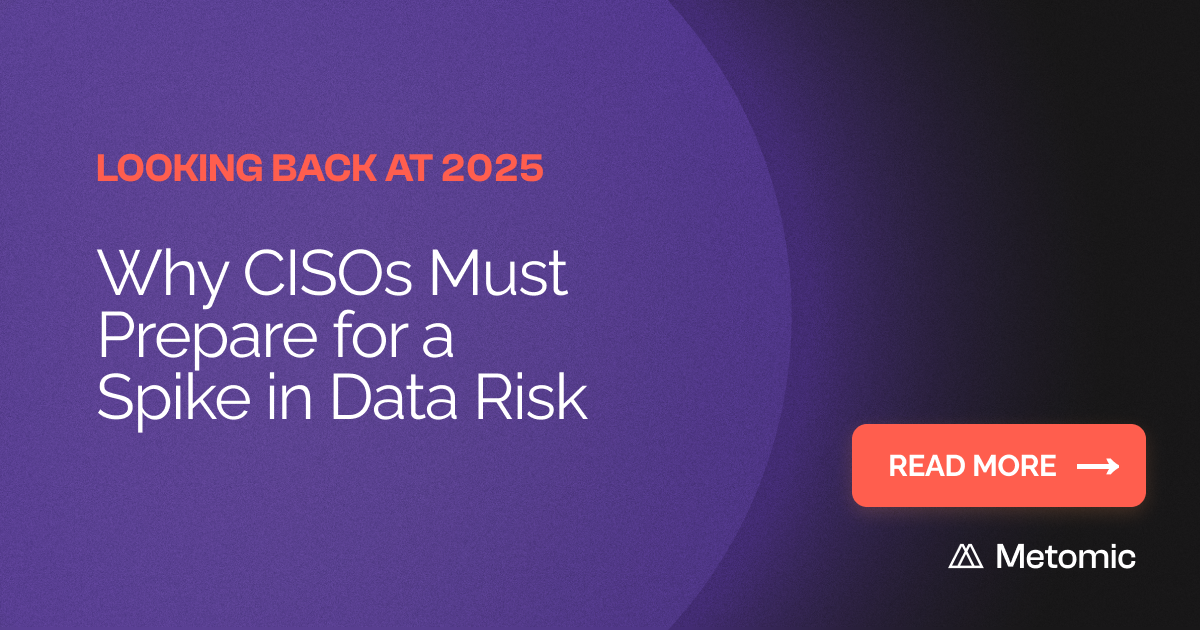Notion DLP (Data Loss Prevention): The Ultimate Guide
Unleash Notion's Power, Securely! Download our FREE guide and discover how Data Loss Prevention tools safeguard sensitive data in your Notion workspace. Gain control, ensure compliance, and prevent leaks.
.png)
Notion DLP (Data Loss Prevention): The Ultimate Guide
Unleash Notion's Power, Securely! Download our FREE guide and discover how Data Loss Prevention tools safeguard sensitive data in your Notion workspace. Gain control, ensure compliance, and prevent leaks.
.png)
Key Points:
- Notion itself has security features but can be risky for storing sensitive data due to factors like ease of sharing and collaboration.
- To improve security, use a data loss prevention (DLP) tool alongside Notion. This can monitor activity, enforce data security policies, and prevent leaks.
- Effective DLP strategies include user education on data handling and keeping DLP strategies up-to-date with regular reviews.
- Download our guide to find out how Metomic can support your DLP strategy when using Notion and safeguard your business's future.
Notion is a powerful tool for collaboration, integrating note-taking, task management, and collaboration features in one platform. It can help organisations store content in a versatile location, presenting information in multiple formats such as calendars, Kanban boards, and more.
Businesses will often use Notion to bring teams together, allowing them to plan activities and curate databases.
While Notion is safe for businesses to use, organisations must be aware of the risks of storing sensitive data within the tool.
What is Data Loss Prevention (DLP) for Notion?
Notion serves as a data repository for millions of users around the world, who employ the tool to store business plans, product roadmaps, sales personas and more. If unauthorised users were able to access these materials, it could prove hugely damaging for any organisation.
Some common data security challenges seen within Notion include:
- The ease of external sharing permissions that can pose a risk if not monitored correctly
- Integrations with third-party tools can introduce vulnerabilities if misconfigured
- Notion encourages collaboration which can result in unintentional overexposure
DLP tools serve to counter these issues by ensuring sensitive data is only accessible to those who require it for their roles. Detecting and preventing accidental or intentional data leaks, DLP tools can help enforce customised security policies and maintain compliance with data regulations.
Integrating a data security tool, like Metomic, with Notion can add an extra layer of security and control, ensuring employees can carry out their responsibilities effectively while keeping data protected.
Is my data safe in Notion?
Notion has data security features built-in, such as data encryption methods to protect data in transit and at rest. It also has multi-factor authentication available to ensure secure access to the relevant people.
However, the security of any data within Notion is based on various factors such as employee usage, and correct configuration processes. It is far too easy for employees to share an entire Notion workspace when attempting to share a single page, meaning using Notion is not entirely secure from data breaches.
Staying up to date with any new Notion security features is key for understanding how best to make the most of Notion’s in-built security measures.
💻Watch: Rich Vibert, CEO of Metomic explains the sharing features & security risks in Notion
Why do I need a data security tool for Notion?
While Notion may have some in-built security features, this may not be enough to protect sensitive data stored within the platform.
A data security tool implements real-time monitoring to proactively identify threats within Notion. By scanning assets for sensitive data, and surveilling user activity, security teams can understand whether any anomalous behaviours are taking place, and where their most critical risks lie.
In addition to their ability to give security professionals full visibility and control over Notion, data security tools like Metomic can enforce security policies aligned with business needs and compliance requirements. Allowing teams to remain highly productive, dat security tools can ensure that data is not stored for long periods of time, and permissions are revoked promptly to minimise exposure.
Is Notion GDPR compliant?
Notion takes General Data Protection Regulations (GDPR) seriously, and has taken steps to align the platform with the requirements, including vetting any sub-processors to ensure they are operating in line with best practice.
However, the responsibility for GDPR compliance also rests with the user, so it’s best not to rely solely on Notion for GDPR compliance.
Is it safe to put passwords in Notion?
It’s not recommended to save passwords in Notion as it is not designed for this purpose. We recommend leveraging purpose built password management platforms instead.
If your Notion environment were to be compromised, you increase the impact of this breach by provisioning them with the keys to other corporate accounts.
How to keep data secure in Notion
Effective DLP strategies begin with comprehensive user education. Employees should understand where sensitive data should be stored, and who is able to have access to Notion pages.
Helping individuals see how this fits into their role can be especially beneficial, rather than providing generic annual training that isn’t memorable. Making data security the responsibility of the entire workforce can help to mitigate risks, and bridge the gap between the security team and the wider organisation.
While implementing a DLP strategy is vital to an organisation’s security layer, it's equally as vital that such a strategy is not implemented then neglected. Regular reviews are crucial to ensure that the strategy is working well for the organisation, and to identify any further optimisations. Security vulnerabilities and threat actors are ever evolving, it is therefore important for businesses to ensure their defences and security policies are up to date to sufficiently deal with the risks.
How to choose a DLP tool for Notion
Finding the right DLP tool will rely on a number of factors.
Firstly, there is the importance of dealing with false positives (incorrectly identified incidents) and false negatives (missed incidents). A good DLP tool will have a minimal number of false positives/negatives, so that the security team can focus on the risks that matter to the business.
Security professionals should be able to put the correct rules in place to discover data that resides in insecure SaaS applications or the cloud, and take steps to ensure that it is protected. Balancing sensitivity levels to minimise false negatives ensures that potential security threats are not overlooked, maintaining a comprehensive and reliable DLP solution.
Secondly, balancing data security with productivity is key. Rather than hindering efficiency, and disrupting the workforce, the right DLP tool should enable employees to use the tools that help them do their job effectively, while ensuring data is secured, and unavailable to unauthorised users.
This means that teams aren’t restricted in the tools and programs that they use, and are able to understand best practices for data security in Notion. It also helps to bridge the gap between the security team, and the wider workforce, making everyone responsible for the security of the company’s data.
Finally, a DLP tool that prioritises the risks that matter to the business is crucial to addressing the most pressing issues first. Regular audits and monitoring help identify potential issues proactively, allowing for preventive measures.
Additionally, organisations should foster open communication channels for users to report concerns or seek assistance, ensuring that DLP-related issues are swiftly addressed, and the overall security posture remains resilient.
🔒Why should you use Metomic for Notion data security?
- Agentless integration makes the process quick and easy - in just 3 clicks, you’ll be ready to start scanning your Notion environment
- Scan your full surface area of Notion, including pages, comments, attachments, and databases, so you don’t miss any risky data points
- See whether Notion pages are private or public at a glance, with easy viewing for each asset
Download our guide to find out how Metomic can support your DLP strategy when using Notion and safeguard your business's future.





.png)